- Scam Emails and Texts Impersonating Big Brands
- Emails/Texts About Items You Never Ordered
- Fake Discounts (A Retailer Black Friday Scam)
- Stolen Credit/Debit Card Information
- Fake Online Stores
- What to Do After Falling for a Black Friday Scam
Before jumping on Black Friday deals and spending your hard-earned money in one weekend, there are a few things you need to be aware of and prepared for so you don't get scammed. Unfortunately, thieves are just waiting to take advantage of the upcoming spending sprees, using sales to steal your money and information. Here's how to protect yourself from some of the most common Black Friday scams.
Scam Emails and Texts Impersonating Big Brands
It's not uncommon to get email notifications of upcoming Black Friday sales from your favorite retailers like Amazon, Best Buy, and Target. You may even start receiving these a month in advance, enticing you to buy during the early sales period.
Scammers are well aware of these notifications and use tactics to trick you into clicking on fraudulent links. For example, you may receive an email that looks like it's from Amazon, but it's, in fact, a fake email that sends you to a fake Amazon website that ultimately steals your information. These are known as phishing scams.

Scammers are now using text messages (including via messaging apps like WhatsApp) to reach more people, impersonating brands like Amazon and Walmart. As a general rule of thumb, don't click on links you receive in text messages.
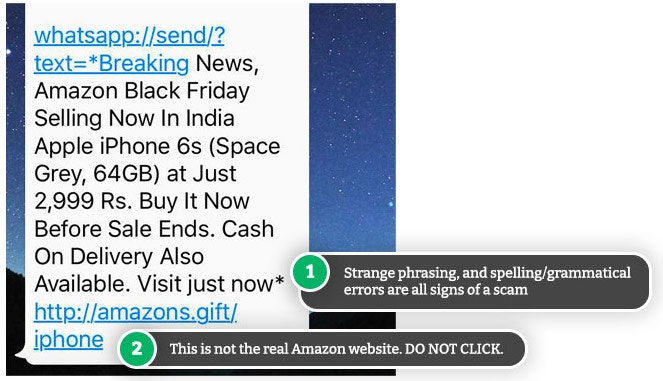
Signs of this scam include:
- The sender's email not matching the brand's official email addresses
- Spelling mistakes, typos, and grammatical errors throughout
- Weird formatting (e.g., broken paragraphs, irregular line spacing)
- Links that go to a different website (not the brand that the email is supposedly coming from)
- Blurry or distorted logos (or no brand logos at all)
- Emails that go straight to your Spam
- Emails with attachments
- Messages from brands you didn't subscribe to (e.g., if you get a text from Walmart but have never bought anything from there or given your contact information, it's likely a scam)
How to Beat This Black Friday Scam
There's one basic rule to follow to protect yourself from phishing scams this Black Friday—don't click on any links.
However, avoiding clicking on links can be difficult when you want to check out the deals on offer, especially if the email looks legitimate. If you do happen to click on the link, check the URL to verify that it's the brand's actual website before you start shopping on the site or enter any of your information.
When in doubt, go directly to the website by typing in the URL yourself or searching for the site on Google.
Emails/Texts About Items You Never Ordered
Shortly after Black Friday, you may receive emails or text messages about items you never ordered.
These could be things like:
- Order confirmations
- Delivery notifications
- Order updates
There is one of two things happening here—either someone has used your account to purchase items, or they are fake emails designed to steal your information.
Either way, it's essential to look for red flags of emails and text messages before clicking any links. And, when in doubt, NEVER click any links or open any attachments.
Signs of this Black Friday scam are similar to the red flags of the above scam, including:
- Sender emails that don't match the brand's email domain
- Typos, spelling and grammatical errors, weird phrasing
- Weird design and formatting
- Links that don't go to legitimate brand websites
- Messages about orders that you didn't order
- Messages from brands that you've never purchased from
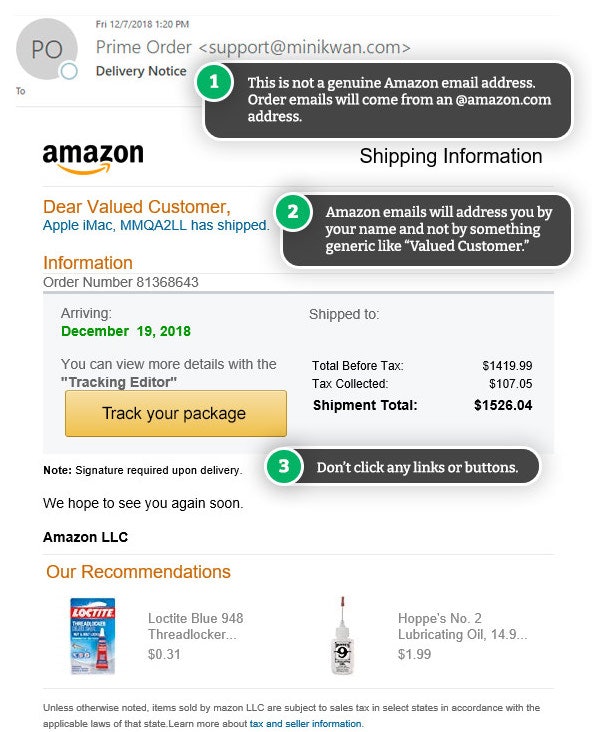
How to Beat This Black Friday Scam
To beat this scam, don't click on any links or download any attachments—the message could be fake and lead to your information (and money) being stolen. If you do happen to click on any links, don't enter any of your personal information.
If your account is compromised, log directly into your account from the website or app to check. For example, if you get an order confirmation from Amazon, log in directly from Amazon.com or via the Amazon app versus using the links in the email or text.
If your account is compromised, you should:
- Change your username and passwords
- Alert your bank and dispute any fraudulent transactions
- Alert the retailer and try to cancel fraudulent orders
Fake Discounts (A Retailer Black Friday Scam)
If you notice an item that has been very heavily discounted, you may want to check the price from other retailers or websites before buying it. You may be thinking you're getting a great price, when in fact, the retailer had just marked up the original price leading up to Black Friday so that they can market it as a great sale.
For example, let's say you have a TV that is usually priced at $1,000. A few weeks before Black Friday, the retailer marks it up by 10% ($1,100). On Black Friday, they mark it down by 20% ($880). The sale will be 20% off, when in fact, it's only 12% off the original price of $1,000.
- Original price: $1,000
- Increase in price before Black Friday: $1,100
- Black Friday sale: 20% off = $220 discount
- Actual discount off original price: 12% off = $120 discount
The retailer makes it seem like you're getting a $220 discount, when in fact, you're only getting a $120 discount.
Signs of this scam include:
- Items with a significant percent discount but still seem to be priced high (or close to their original price)
- Items that are discounted heavily but are the same price on another site with a lower discount
How to Beat this Black Friday Scam
Before purchasing products on Black Friday, do a bit of research and find pricing on other websites and other stores. Look for the recommended retail price, so you know how much it usually sells for.
Don't just pay attention to the discount percentage—think about what you think is a reasonable price for the product. For example, 20% off a $200 pair of jeans still means you're paying $160.
Stolen Credit/Debit Card Information
Another way scammers try to steal your money during Black Friday sales is by just straight up stealing your card information. They can steal your information regardless of whether you shop in person or online.
When shopping in person, sketchy sales staff may keep a credit card skimmer behind the counter and quickly swipe your card when you pay. Some scammers may attach the skimmer to the card reader that you swipe yourself. These machines save your credit card number, expiration date, and name while the scammer takes note of the card verification code (CVC).
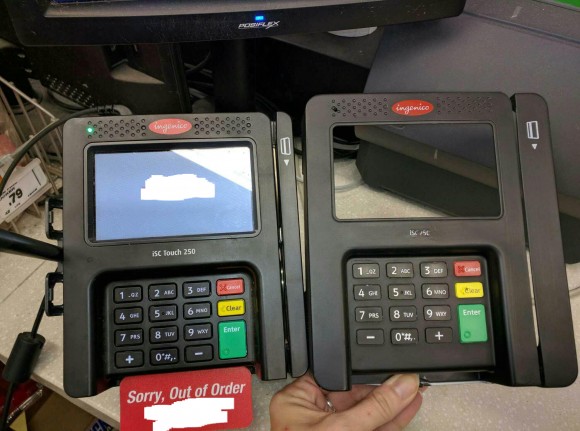
When shopping online, you're making yourself even more vulnerable to stolen card information. Scammers may hack into retailers' databases, or you may even have malware installed on your device, which can give thieves access to your accounts.
Once scammers have this information, they will use your credit card to make fraudulent purchases.
How to Beat This Black Friday Scam
Once your card information is stolen, the only thing you can do is call your bank and have your card canceled. But there are ways you can prevent your card information to be stolen in the first place, including:
- Don't use a card when paying in person. Instead, use cash or touchless pay, like Apple Pay or Google Pay.
- Don't save your credit card information on any websites.
- Don't make online purchases using public WiFi or on shared devices.
It's always wise to have fraud alerts enabled on your credit and debit card accounts. Banks have gotten very good at alerting people of suspicious activity, allowing you to stop the scammers in their tracks.
Fake Online Stores
Although Black Friday may seem like the best time of year to buy, it's also one of the most dangerous times to buy. This is the time of year that scam websites start popping up, tricking you into buying items that don't even exist.
Most of these websites target females and often come in the form of clothing sites. The scam is pretty simple—you buy items from a website, but the products never arrive. Then, when you go back to the site to make a complaint, it's no longer there, or their customer service doesn't ever respond.
Scam Stores May Also Sell Fake Products
Watch out for online stores that sell fake and counterfeit products. Although you will receive your order, you will have paid high prices for cheap knock-offs.
Signs of fake online stores include:
- A website that hasn't been around for very long (scammers will set fake sites up then remove them after they've successfully scammed several people)
- Products with very few reviews or reviews that seem fake
- Unknown brands
- Sites with very little information on shipping or in their Privacy Policy or Terms and Conditions
- Websites that aren’t secure (i.e., start with http:// vs https://)
- No return policy
- No contact information
- No option to pay using a credit card
How to Beat this Black Friday Scam
Before buying on any e-commerce sites that you're unfamiliar with, do some research to make sure it's legit:
- Look up the company on the Better Business Bureau website and read reviews they may have.
- Look at the site's Privacy Policy and Terms and Conditions and look for anything suspicious.
- Make sure the site has a refund policy and shipping information.
- Look for existing customer reviews (not all reviews are genuine).
When in doubt, don't buy!
What to Do After Falling for a Black Friday Scam
If you happen to fall for a scam this Black Friday, you must report it as quickly as possible to minimize the damage. This includes informing:
- The brand that's being impersonated
- Your credit card company (dispute the transactions and cancel your card)
- The authorities, such as the Federal Trade Commission (FTC) and local police
- Your State Attorney General's office
You should also secure any compromised accounts by changing your usernames and passwords. If you think your identity has been stolen, you may also want to consider placing a fraud alert on your credit report or freezing your credit completely.
Act Quickly After Falling From Scams
The key to recovering from scams is to act quickly. Whether your identity was stolen or someone used your credit card, the faster you act, the easier it will be to get your money back.

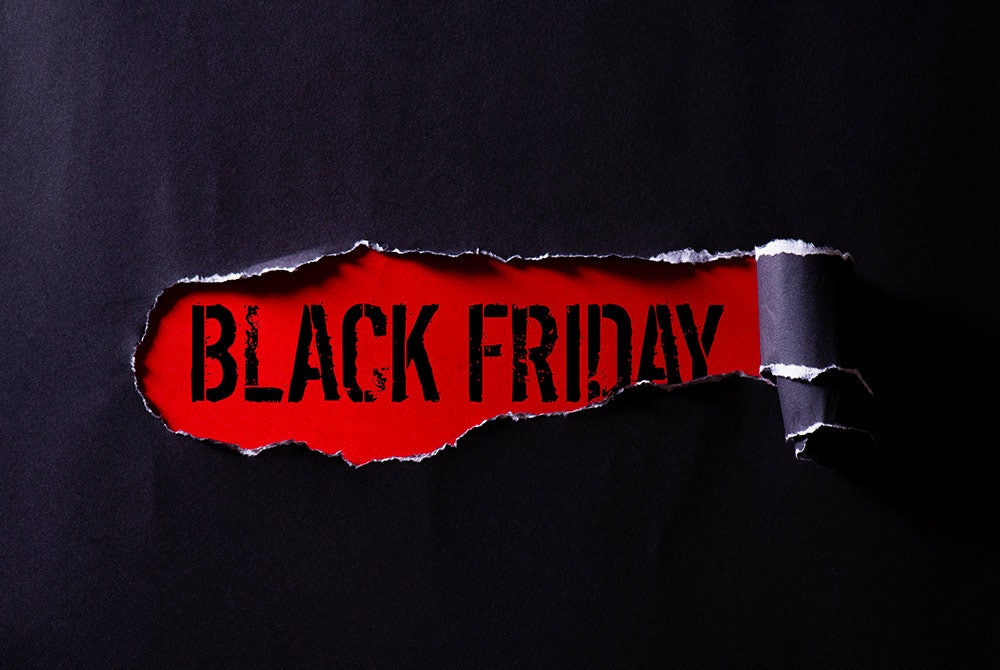


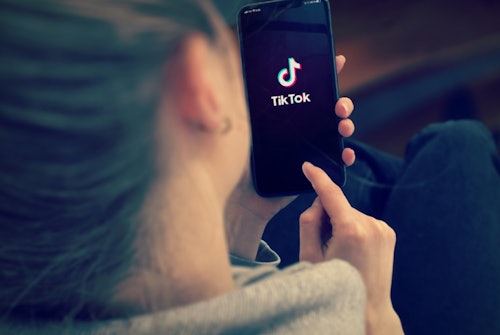






Comments